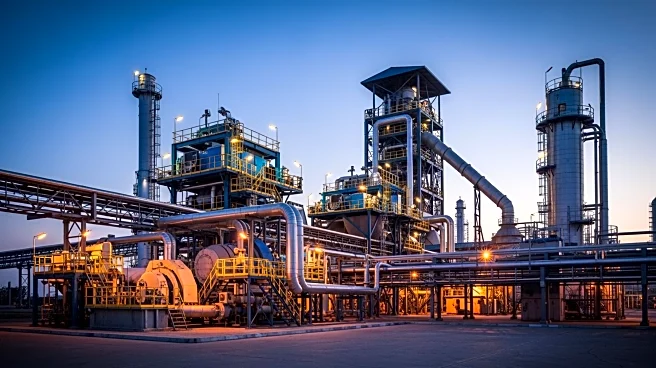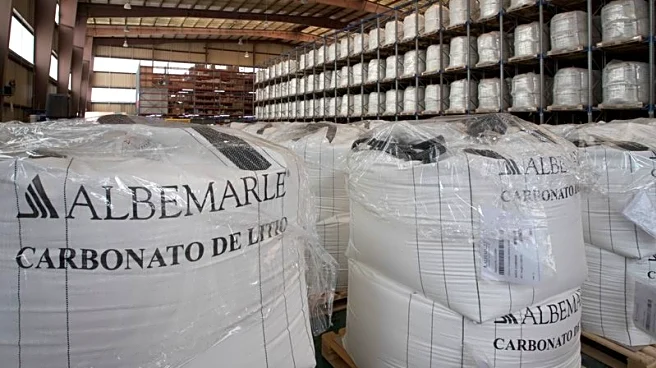What's Happening?
Eurasian Resources Group (ERG) has entered into a strategic agreement with Primetals Technologies and Midrex Technologies, Inc. to construct Kazakhstan's first hot briquetted iron (HBI) plant. This facility,
set to be one of the largest metallurgy plants in Central Asia, will utilize advanced direct reduction iron (DRI) technologies, specifically the MIDREX Process, which uses natural gas instead of coke, significantly reducing emissions. The plant aims to produce HBI with a metallisation degree of at least 93.5% and an iron content of approximately 90%. Scheduled for commissioning in 2029, the plant is designed to transition to hydrogen utilization when feasible. The project includes a Midrex Shaft Furnace and a proprietary Midrex Reformer, along with automation systems to enhance productivity and reduce power consumption. The initiative follows successful pre-engineering phases and represents a significant investment exceeding $1.2 billion, expected to create over 1,000 jobs.
Why It's Important?
The construction of Kazakhstan's first HBI plant marks a significant advancement in the country's metallurgy sector, positioning it as a key player in the global iron market. By adopting environmentally friendly technologies, the plant will reduce the carbon footprint by over 50% compared to traditional methods, aligning with global sustainability goals. This development is poised to modernize Kazakhstan's economy, expand its export potential, and foster skilled human capital. The partnership with industry leaders Primetals and Midrex underscores the strategic importance of this project, potentially setting a precedent for future industrial advancements in the region. The plant's ability to transition to hydrogen utilization further highlights its role in the evolution of sustainable steelmaking.
What's Next?
The next steps involve the detailed engineering and supply of key process equipment, with the plant's commissioning slated for 2029. As the project progresses, stakeholders will likely focus on the seamless integration of advanced technologies and the training of local workforce to operate the facility. The successful implementation of this project could lead to increased foreign investment and collaboration in Kazakhstan's industrial sector. Additionally, the plant's transition to hydrogen utilization will be closely monitored as it represents a significant shift towards greener production methods, potentially influencing global steelmaking practices.
Beyond the Headlines
The establishment of the HBI plant in Kazakhstan could have broader implications for the region's geopolitical landscape, enhancing its industrial capabilities and economic independence. The project's focus on reducing emissions aligns with international climate commitments, potentially influencing policy decisions and encouraging further investments in sustainable technologies. Moreover, the creation of over 1,000 jobs will contribute to local economic growth and development, fostering a skilled workforce that could drive future innovations in the metallurgy industry.










